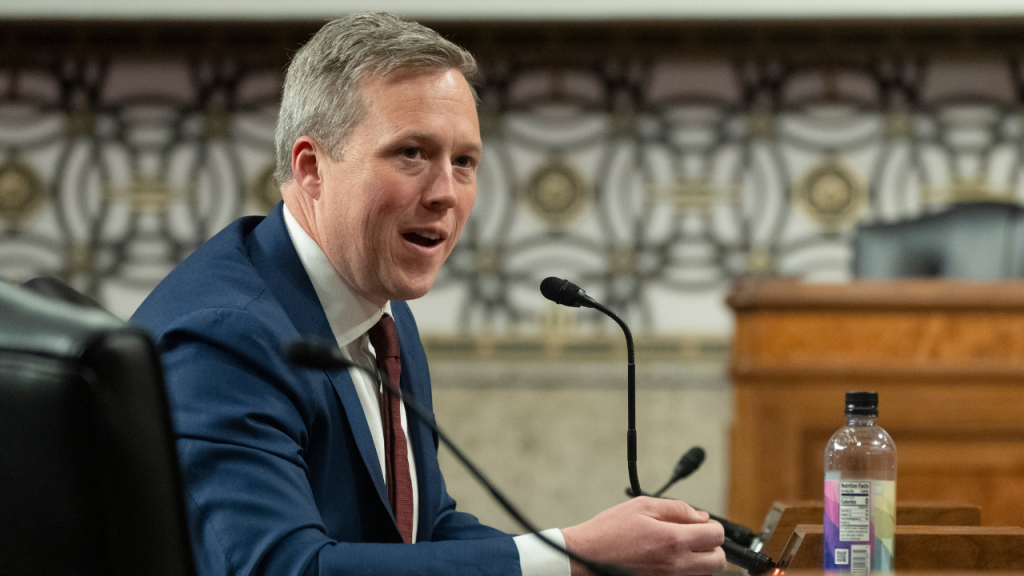U.S. Army Secretary Dan Driscoll has been appointed as the acting director of the Bureau of Alcohol, Tobacco, Firearms, and Explosives (ATF), succeeding Kash Patel, who had temporarily assumed the role in February. Driscoll’s new dual responsibilities come at a crucial time for the ATF, which continues to face scrutiny over its policies and operations related to firearms regulation. While Driscoll maintains his position as Army Secretary, he is now tasked with steering the ATF amid ongoing debates concerning the agency’s future in the current political climate.
| Article Subheadings |
|---|
| 1) Appointment of Dan Driscoll to ATF |
| 2) Background on Kash Patel’s Brief Tenure |
| 3) Driscoll’s Military and Professional Background |
| 4) Challenges Ahead for the ATF Under New Leadership |
| 5) The Future of Firearm Regulation in the U.S. |
Appointment of Dan Driscoll to ATF
The announcement of Dan Driscoll‘s appointment as the acting director of the ATF was made while he was attending a trip in Europe. According to a U.S. defense official, this development signifies a significant shift in the leadership of the ATF at a time when firearms regulation is central to national debates. Driscoll’s dual role aims to bring a sense of continuity while addressing the various challenges facing the agency, which has historically been a focal point for discussions surrounding gun control and associated legislation.
Background on Kash Patel’s Brief Tenure
The brief tenure of Kash Patel as the acting director of the ATF was characterized by his prior appointment as FBI Director. It was reported by individuals close to Patel that his intention was to concentrate on the FBI and not split his focus with ATF duties. Sources indicated that Patel was not intended to serve in a long-term capacity within the ATF, effectively paving the way for Driscoll to take over as the agency head. Patel’s dual appointments raised eyebrows, particularly regarding his experience and capabilities, as critics questioned whether he had the requisite leadership skills to oversee such a significant regulatory body effectively.
Driscoll’s Military and Professional Background
Dan Driscoll
is an Army veteran and venture capitalist, boasting a commendable service record highlighted by his leadership role in the 10th Mountain Division during Operation Iraqi Freedom. Originally hailing from North Carolina, Driscoll’s attributes as a strategic thinker and advisor to key political figures, including Vice President J.D. Vance, reinforce his suitability for the assigned roles. His military experience and advisory skills may prove beneficial as he navigates the complexities inherent to the ATF’s remit, especially in the face of political pressures.
Challenges Ahead for the ATF Under New Leadership
As Driscoll prepares to assume his new responsibilities, he faces significant challenges with the ATF amid the evolving landscape of gun legislation and enforcement. The agency is tasked with enforcing federal laws related to firearms, explosives, and arson, a mission that often places it at odds with those advocating for stricter gun control measures. Recent criticism directed toward the ATF indicates there may be a contentious path ahead, especially with a Republican-dominated Congress scrutinizing the agency’s policies more than ever. Driscoll will need to strike a balance between enforcing existing laws while addressing the concerns of the lawmakers and the public at large.
The Future of Firearm Regulation in the U.S.
The political landscape surrounding firearms regulation in the U.S. is characterized by division and ongoing debates. Following Driscoll’s appointment, the ATF’s role will undoubtedly come under fresh scrutiny particularly from congressional Republicans, who have historically targeted the agency. Regardless of the leadership, the ATF faces the critical challenge of addressing the surge in gun violence while navigating legislation surrounding gun rights. The agency’s future will significantly depend on how effectively Driscoll can foster collaboration, respond to safety challenges, and improve public confidence in the agency’s functions.
| No. | Key Points |
|---|---|
| 1 | Dan Driscoll is appointed as acting director of the ATF while also serving as U.S. Army Secretary. |
| 2 | Kash Patel’s temporary role in overseeing the ATF was meant to allow him to focus primarily on the FBI. |
| 3 | Driscoll has a significant military background that could enhance his effectiveness in the role. |
| 4 | The ATF is under considerable scrutiny and has a complex mission regarding the enforcement of firearms laws. |
| 5 | The future direction of the ATF may be influenced by Driscoll’s leadership amid evolving political landscapes. |
Summary
The appointment of Dan Driscoll as the acting director of the ATF is taking place in a climate rich with political sentiment surrounding firearm regulation. Balancing both his responsibilities as Army Secretary and now the ATF leader, Driscoll’s approach will be significant in addressing the challenges faced by the agency. As substantial debates around gun control and enforcement of existing laws continue, the ATF under Driscoll’s guidance may adapt to ensure both safety and compliance with federal regulations.
Frequently Asked Questions
Question: Who is Dan Driscoll?
Dan Driscoll is the U.S. Army Secretary recently appointed as the acting director of the Bureau of Alcohol, Tobacco, Firearms, and Explosives (ATF), bringing significant military and professional experience to the role.
Question: What challenges does the ATF face?
The ATF faces challenges related to enforcement of firearms laws amidst ongoing scrutiny from lawmakers, particularly around issues of gun violence and regulation changes.
Question: How did Kash Patel influence the ATF’s leadership?
Kash Patel served briefly as the acting director of the ATF before passing the role to Driscoll, as he was primarily focused on his duties as FBI Director.


